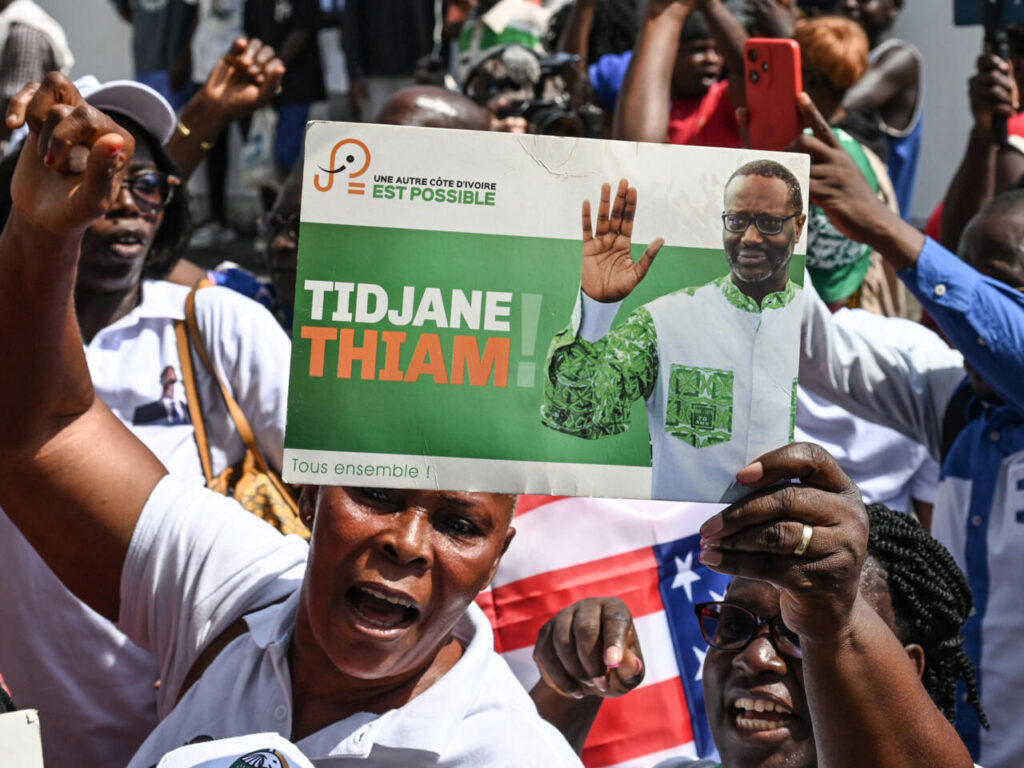Is Ivory Coast’s Red Card Politics an Own Goal for Democracy after Tidjane Thiam’s Ban
As Ivory Coast approaches a pivotal presidential election scheduled for October 2025, the political landscape is marred by controversy and uncertainty, particularly surrounding Tidjane Thiam, a prominent candidate and former international business executive. His aspirations for the presidency are now jeopardized by a recent court ruling challenging his Ivorian citizenship status.
Thiam, who held esteemed positions in global finance, including CEO roles at Prudential and Credit Suisse, moved back to Ivory Coast in 2022 with ambitions to succeed the incumbent president, Alassane Ouattara. The situation took a decisive turn on April 22, when a judge ruled that Thiam, having acquired French nationality decades ago, had lost his Ivorian citizenship. This ruling, based on a post-independence law, effectively barred him from participating in the upcoming elections.
Political Background and Challenges
Thiam comes from a distinguished lineage as a great-nephew of Félix Houphouët-Boigny, Ivory Coast’s founding president. His previous government role in the 1990s, marked by significant infrastructure development and economic reforms, positioned him as a credible alternative in this year’s political arena. However, after being named the Democratic Party of Ivory Coast’s (PDCI) candidate on April 17, his presidential ambitions face a daunting barrier.
With Ouattara, who has served three terms and is noted for economic growth in the country, potentially seeking a fourth term supported by advantages of incumbency, Thiam’s candidacy rose as a beacon of change. His centrist approach and emphasis on economic stability appealed to voters disillusioned by the current administration. However, the court’s decision leaves the electoral landscape without significant opposition.
Implications of the Court Ruling
The situation is exacerbated by the exclusion of three other formidable opposition figures, resulting in a political environment devoid of credible challengers. This has significant implications for voter sentiment towards the ruling party and the overall health of democracy in the nation.
Thiam’s exclusion has fueled frustrations among citizens, particularly as identity issues re-emerge in a context reminiscent of the civil conflicts between 1999 and 2011, which were rooted in contentious notions of “Ivorian-ness.” While the current political climate is more stable compared to the past, the ruling highlights ongoing legal ambiguities regarding dual nationality in Ivory Coast. As Thiam stated, “I was born an Ivorian,” and despite proclaiming his loyalty to the country, the law has been applied in a manner that can only be viewed as restrictive.
Current Political Climate and Looking Ahead
The broader context across West Africa shows a rising discontent with established political systems, as evidenced by recent coups in neighboring Mali, Burkina Faso, and Niger. Many young Ivorians have expressed similar sentiments, longing for more substantial representation and a break from the political status quo.
| Candidate | Status | Party |
|---|---|---|
| Tidjane Thiam | Excluded | PDCI |
| Alassane Ouattara | Incumbent | RHDP |
| Laurent Gbagbo | Excluded | PPA-CI |
| Guillaume Soro | Excluded | GPS |
As the election date approaches, Thiam’s supporters are hopeful that negotiations and public pressure might allow him a path back into the race. With significant implications for the future of democracy in Ivory Coast, all eyes are on how this political crisis unfolds in the coming months and whether the country can emerge as a beacon of hope rather than a cautionary tale in West African politics.


